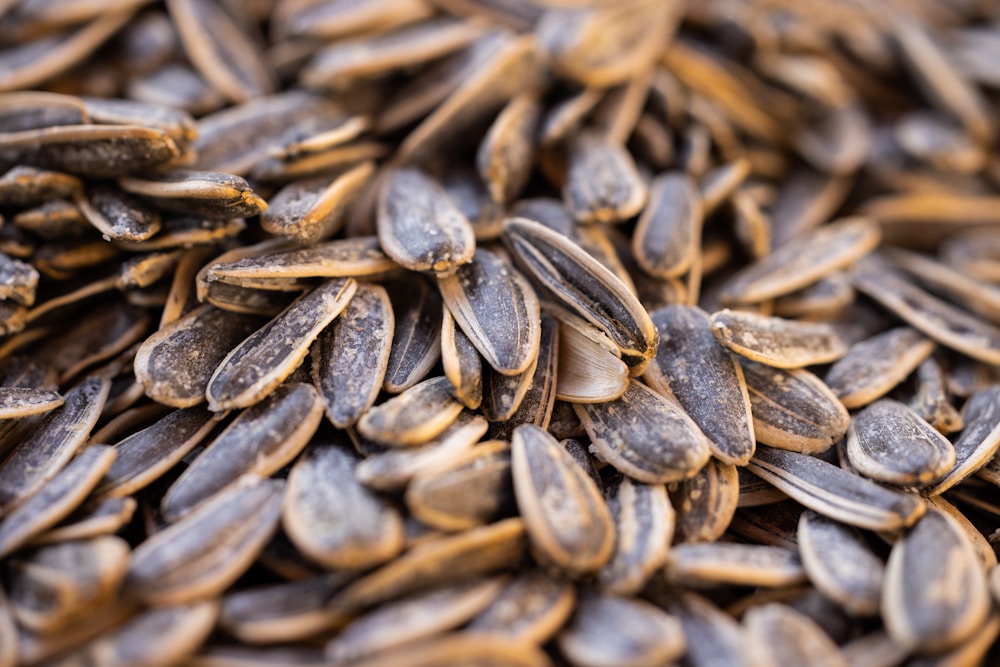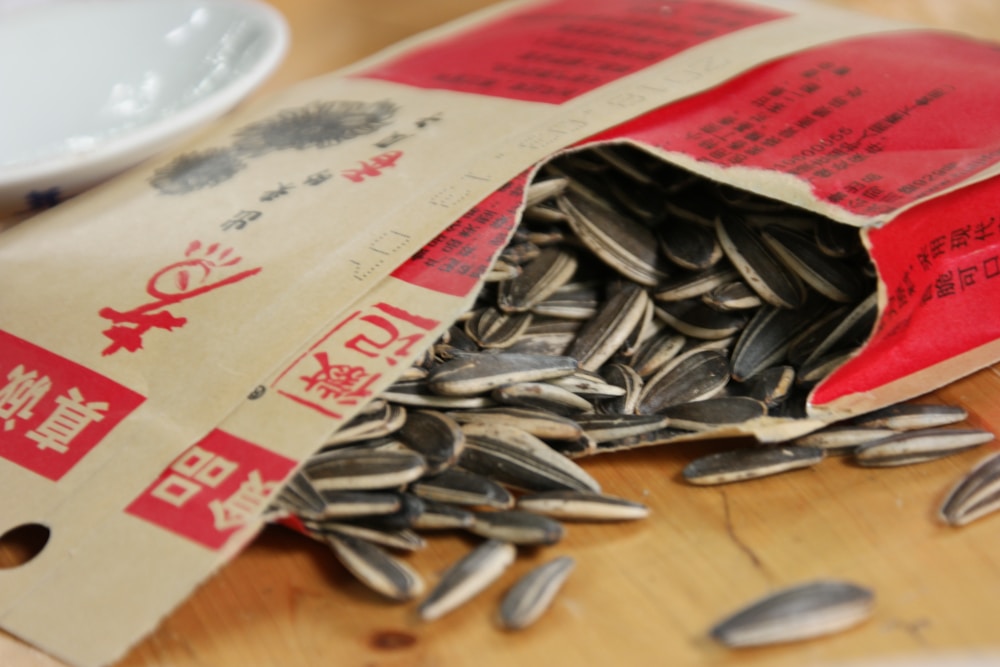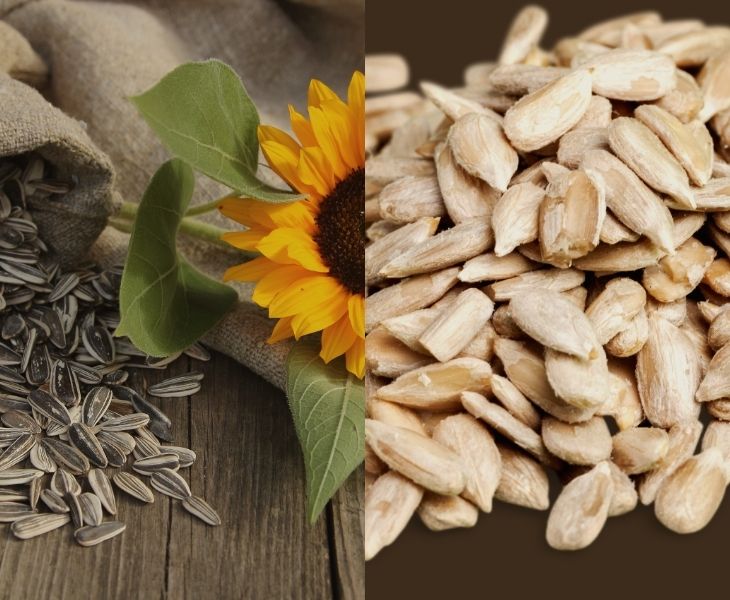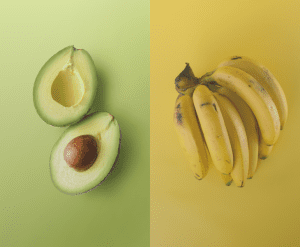Sunflower seeds are more than just a tasty snack—they are packed with essential nutrients that can boost your health in many ways. From supporting heart health to improving digestion, these tiny seeds are a powerhouse of benefits. But what makes them so special? Let’s explore the sunflower seeds benefits and why you should add them to your diet today!
Table of Contents

Sunflower Seeds Nutrition: What Makes Them So Healthy?
Sunflower seeds are loaded with vitamins, minerals, and healthy fats. Here’s a breakdown of their nutritional value per 1-ounce (28-gram) serving:
- Calories: 165
- Protein: 5.5g
- Healthy Fats: 14g
- Fiber: 3g
- Vitamin E: 37% of the Daily Value (DV)
- Magnesium: 9% of the DV
- Selenium: 32% of the DV
- Iron: 6% of the DV
With such a rich nutrient profile, sunflower seeds can be a fantastic addition to a balanced diet.
Top Sunflower Seeds Benefits
1. Supports Heart Health
Sunflower seeds are an excellent source of healthy fats, particularly monounsaturated and polyunsaturated fats, which can help lower bad cholesterol levels. These fats work by reducing LDL (bad cholesterol) and increasing HDL (good cholesterol), which helps in maintaining overall cardiovascular health.
They also contain magnesium, a crucial mineral that aids in relaxing blood vessels, thereby reducing high blood pressure. Additionally, sunflower seeds are rich in phytosterols, plant compounds that have been shown to lower cholesterol levels, further enhancing heart health and circulation.
2. Rich in Antioxidants
High in vitamin E and selenium, sunflower seeds help protect your cells from oxidative stress, reducing the risk of chronic diseases such as heart disease and cancer. Vitamin E acts as a powerful antioxidant that neutralizes free radicals, which can cause cell damage and inflammation. Selenium further enhances the body’s antioxidant defenses, supporting DNA repair and slowing down aging-related damage.
3. Boosts Immunity
The zinc and selenium in sunflower seeds contribute to a strong immune system, helping your body fight infections and inflammation effectively. Zinc plays a key role in the development of immune cells, while selenium enhances the production of antibodies and helps reduce oxidative stress, which can weaken the immune response. Regular consumption of sunflower seeds may help in reducing the severity of colds and flu.

4. Enhances Skin Health
Thanks to their vitamin E content, sunflower seeds promote skin elasticity and reduce signs of aging by combating free radicals that cause wrinkles and dryness. Vitamin E helps in maintaining the skin barrier, keeping it hydrated and protecting against environmental damage.
The essential fatty acids in sunflower seeds also contribute to a radiant complexion by nourishing the skin and reducing inflammation linked to conditions like acne and eczema.
5. Supports Weight Management
Looking to shed a few pounds? Sunflower seeds are high in fiber and protein, keeping you full longer and preventing unnecessary snacking. Fiber slows digestion, promoting satiety, while protein helps maintain muscle mass and keeps metabolism active. Incorporating sunflower seeds into meals or snacks can help curb hunger pangs, making weight management easier.
6. Good for Digestive Health
The fiber in sunflower seeds aids digestion by promoting gut health and preventing constipation. Dietary fiber is essential for maintaining regular bowel movements and supporting beneficial gut bacteria, which play a crucial role in overall digestive function. Eating fiber-rich foods like sunflower seeds can also help prevent conditions such as irritable bowel syndrome (IBS) and diverticulitis.
7. Helps in Diabetes Management
Sunflower seeds have a low glycemic index and contain compounds that help regulate blood sugar levels, making them a great snack option for people with diabetes. The presence of magnesium helps improve insulin sensitivity, reducing the risk of insulin resistance and type 2 diabetes. Additionally, the fiber content in sunflower seeds helps slow the absorption of sugar into the bloodstream, preventing sudden spikes in blood glucose levels.
8. Improves Mood and Mental Health
These seeds are rich in tryptophan, an amino acid that helps produce serotonin—a neurotransmitter that boosts mood and reduces stress. Serotonin is often referred to as the “feel-good hormone” because of its role in promoting feelings of happiness and relaxation. Magnesium in sunflower seeds also plays a role in brain function, helping to alleviate symptoms of anxiety and depression.
9. Strengthens Bones
The magnesium, phosphorus, and calcium in sunflower seeds help maintain strong and healthy bones. Magnesium is essential for bone density, while phosphorus is a key component of bone tissue. Regular consumption of sunflower seeds can help reduce the risk of osteoporosis and keep bones strong as you age.
10. A Natural Energy Booster
Packed with healthy fats, protein, and B vitamins, sunflower seeds provide a quick and sustainable energy boost. The B-complex vitamins, including niacin and folate, help convert food into energy, keeping you active throughout the day. Additionally, the iron content in sunflower seeds supports oxygen transport in the blood, preventing fatigue and enhancing stamina.

How to Choose the Best Sunflower Seeds
Not all sunflower seeds are created equal. Here are some tips to find the best sunflower seeds:
- Go for raw or roasted: Avoid heavily salted or flavored varieties.
- Check the ingredients: Choose organic and non-GMO seeds for maximum benefits.
- Opt for shelled or unshelled: Shelled seeds are convenient, while unshelled provide a more natural taste.
How to Eat Sunflower Seeds
There are many delicious ways to incorporate sunflower seeds into your diet:
- As a snack: Eat them raw, roasted, or lightly salted.
- In salads: Sprinkle over fresh greens for a crunchy texture.
- In smoothies: Blend with fruits and yogurt for added nutrients.
- In baked goods: Add them to bread, muffins, or granola bars.
- As a topping: Use them on oatmeal, yogurt, or soups.
FAQs About Sunflower Seeds
Are sunflower seeds good for weight loss?
Yes! Their fiber and protein content help control appetite and support weight management.
Can sunflower seeds cause allergies?
Some people may experience allergic reactions to sunflower seeds. If you have nut or seed allergies, consult your doctor before consuming them.
How many sunflower seeds should I eat daily?
A handful (about 1 ounce or 28 grams) is a healthy portion that provides essential nutrients without excessive calorie intake.
Are sunflower seeds keto-friendly?
Yes! Sunflower seeds are low in carbs and high in healthy fats, making them a great addition to a keto diet.
Final Thoughts
Sunflower seeds are an incredible superfood packed with essential nutrients that support overall health. Whether you’re looking to boost heart health, improve digestion, enhance skin health, or manage weight, these tiny seeds can make a big impact.
Start incorporating the best sunflower seeds into your daily diet and experience their powerful health benefits today!
Ready to Get Started?
Try adding sunflower seeds to your meals today! For more health tips and natural remedies, check out our latest blog posts on The Planttube Blog.
Authoritative Sources:
Stay healthy and keep snacking smart!








